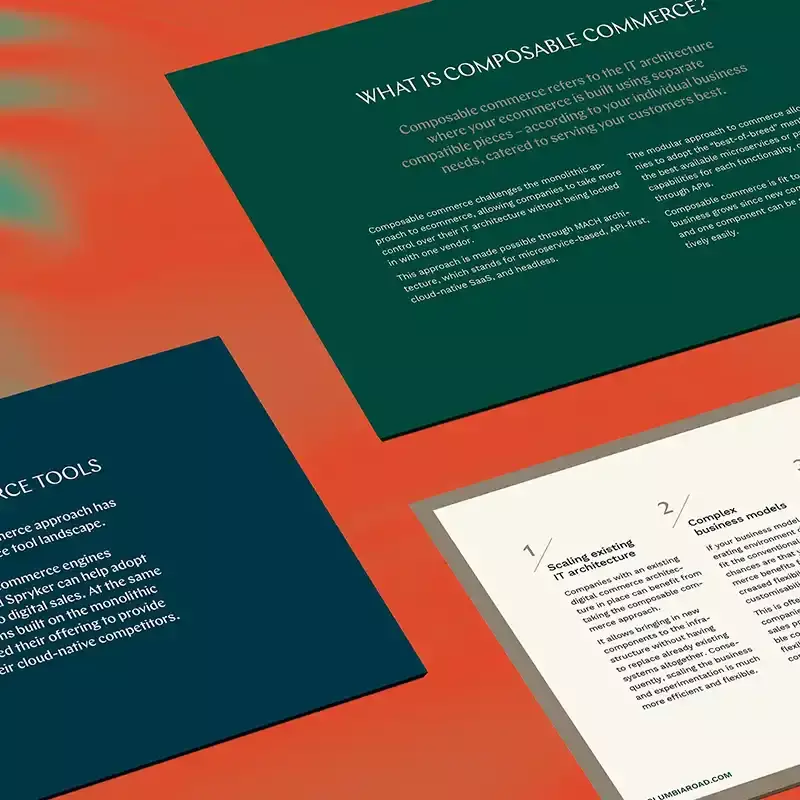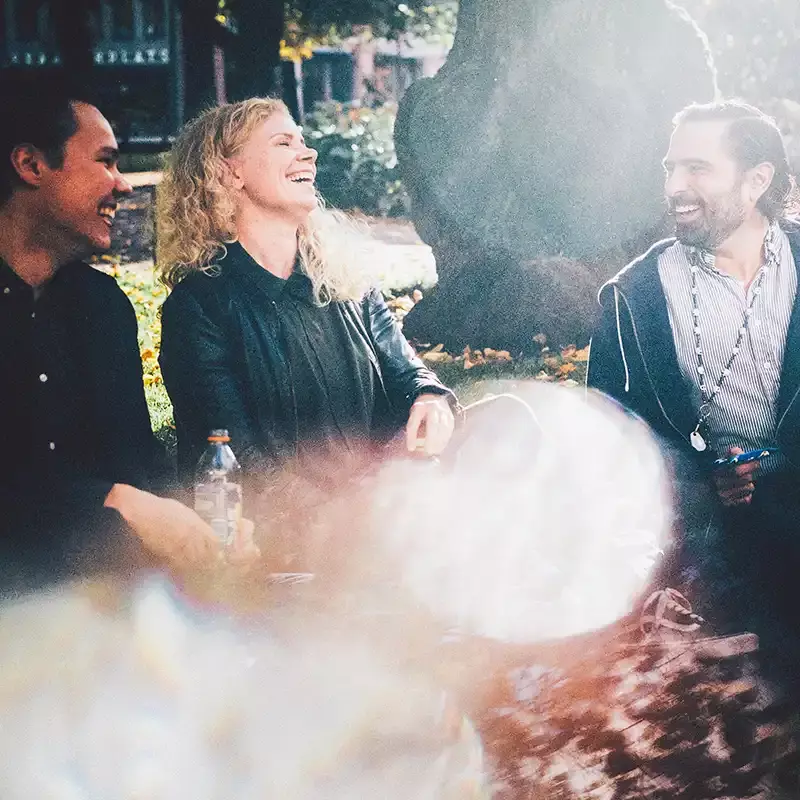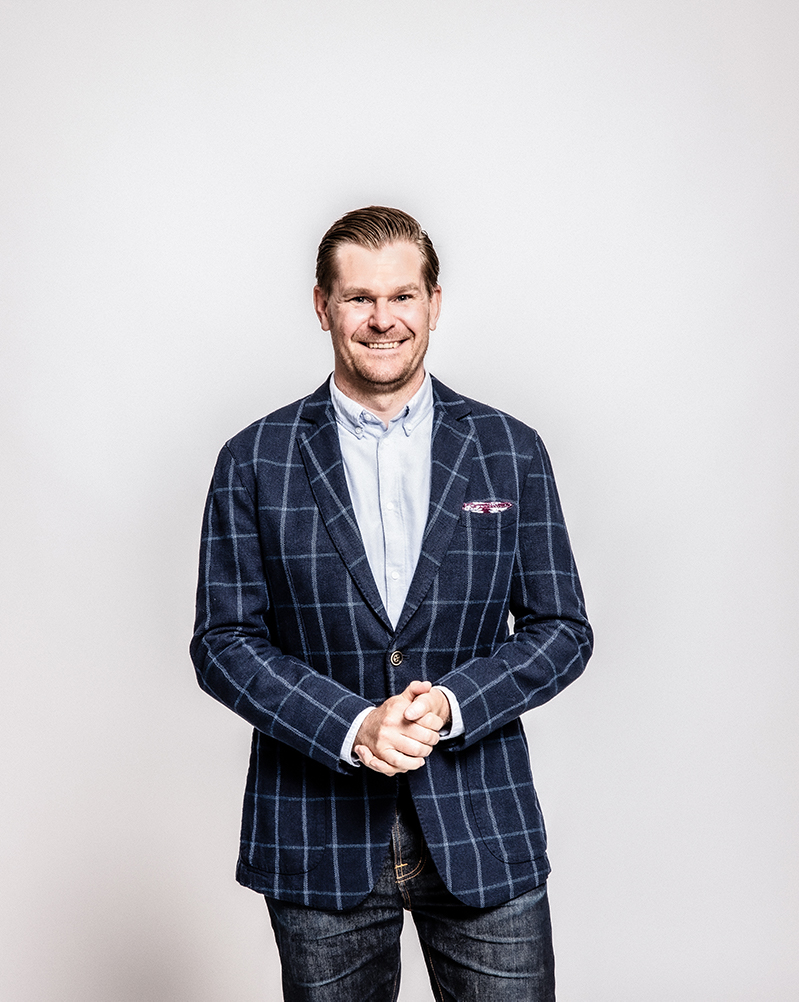The Data Handbook
How to use data to improve your customer journey and get better business outcomes in digital sales. Interviews, use cases, and deep-dives.
Get the bookAlthough my official title is Managing Consultant this doesn’t really cover the breadth of my role. My focus is on software development, but in reality I do a bit of everything: I’ve been here since we were just six people in the Stockholm office and I’ve seen, and helped, the office grow.
Mine is an “all hands on deck” kind of role, doing everything from recruitment to maintaining a good office atmosphere. In my project work I have done everything from small-scale things like implementing a theme change on a HubSpot site, to acting as a CTO for a company.
From development to deployment…
Before Columbia Road I did a few things that prepared me for helping to build our community and develop our tech competence. Firstly, there was learning the hard skills – I’ve been playing with computers since the early 90s when I discovered Linux, and I’ve always had a keen interest in internet infrastructure and Unix-based systems. After my mandatory armed forces service, I worked as a Unix consultant in a large Swedish bank doing systems administration for a capital markets department.
I’ve also learned the importance of community. In 2005 I got the opportunity to join a rapid-reaction unit in the Swedish armed forces and was deployed to northern Afghanistan from February to November 2006. This was a very interesting part of my career and provided a great contrast to my other life of computers and servers. Our camp had about 150 people but only 40 were combat personnel, so we had to do everything ourselves. This gave us a really strong sense of community, which I value highly.
…and from start-ups to salary
When I returned to Sweden, I went back to the same bank but worked more closely on the business side, helping them to digitalise the online foreign currency exchange for SME and institutional clients. This necessarily involved getting people to adopt new ways of working, which is often the biggest challenge with change. I had the itch to start something of my own, based on challenges I’d noticed with the admin work surrounding grass-roots football, such as collecting membership fees and making sure there are enough players for a match. I developed a SaaS application to automate these tasks and raised enough money to leave the bank and work on it full-time, along with two co-founders. During that time, we also founded another company, Konsento, which was later acquired.
I was also doing some freelance work, which was fun, but I missed working as part of a community, so while I was on parental leave with my second child, I got in touch with Columbia Road thanks to a tip from a former colleague. If I remember correctly, my one-year-old was with me for all my interviews, which felt very Swedish! Columbia Road’s flat hierarchy and technology-agnostic mindset immediately stood out to me – we solve business problems with the help of technology, rather than taking technology and finding problems to solve with it.
Building a strong community
Having a community helps me grow and lets me help others grow. The culture and community were already good in the Stockholm office when I joined and I’m proud that I’ve helped maintain and develop that. In the military the community is unparalleled – everyone in my squad was looking out for my wellbeing and I was looking out for theirs. That’s not something you find so much in civilian life, but Columbia Road is the closest I’ve found – everyone genuinely cares for each other. I also think work should be fun, and Columbia Road certainly delivers on that score!
Being a consultant gives you many opportunities to try out new technologies and sometimes we need to make a decision for a client about which tech stack to use. This is something we discuss as a community quite often, both informally over pizza in developer get-togethers or in sparring sessions at clients' offices. Making decisions like this can seem easy at first – just use the shiny new thing! Right? But thinking about the long-term costs, maintainability and need to find skilled labour makes it an interesting challenge from a business perspective. This is where our community’s business expertise is invaluable because decisions regarding which technologies to use need to be based on how they will help clients achieve their short and long-term goals.
A safe place to make mistakes
Working with other developers has helped me grow professionally, particularly when I’ve supported others and let them take the final decisions. I’ve learnt to trust others to do their work rather than trying to figure everything out myself. You have to allow people to make mistakes and be comfortable with it, and you need to create an environment where people are not afraid to try new things. It’s okay if something goes wrong as long as you learn from it.
Trust is also essential with clients, so we build strong relationships and communicate directly with different stakeholders. This makes difficult conversations possible and that has a big impact on results. Willingness to share knowledge and expertise is a typical Roadie thing, and there’s a lot of support when you need it. I’m good at sparring and helping colleagues work out what they need because I’ve dabbled in many things. Someone once described me as a tech hustler – anything where tech is involved, I’ve either already done something similar or can get it working!
The right people with the right skills
One thing that always surprises people is our flat hierarchy and that we don’t have a boss – but it’s true, and it works! The amount of effort that goes into recruiting people is also different from other companies – the whole process is about finding a cultural fit rather than just a skills fit. Technology skills are important, but you also need to be a good communicator and able to work in multiple domains; you might be working with forestry or climate tech one day, and ecommerce or construction the next.
Hires are a collective decision, so it isn’t uncommon to have four to six people involved. We devote a lot of time to finding the right people and giving all potential recruits the best possible experience. That drive to do the best for people extends into the onboarding process – we don’t use trial periods as a way to vet new employees, instead we try to give them everything they need to be successful. It’s more like a mentoring process than anything else.
The Data Handbook
How to use data to improve your customer journey and get better business outcomes in digital sales. Interviews, use cases, and deep-dives.
Get the book




